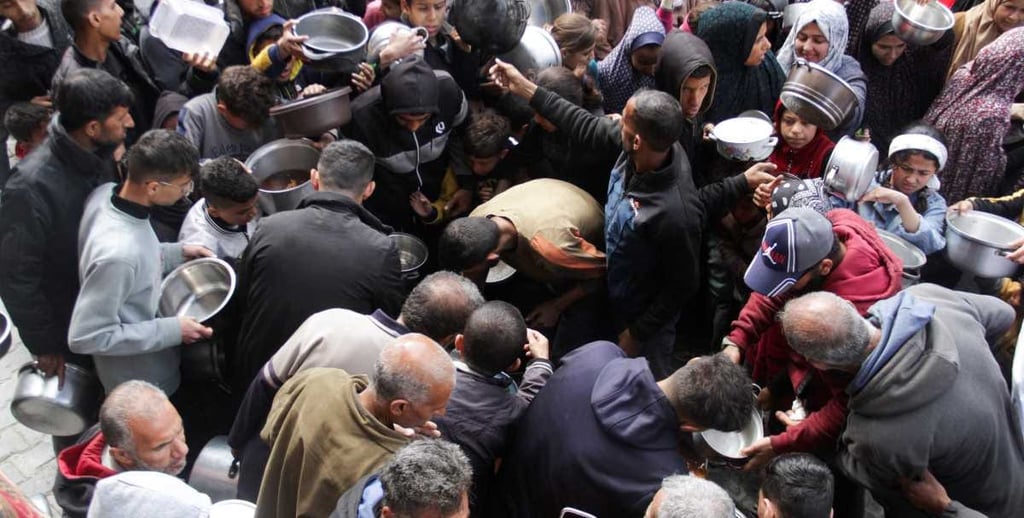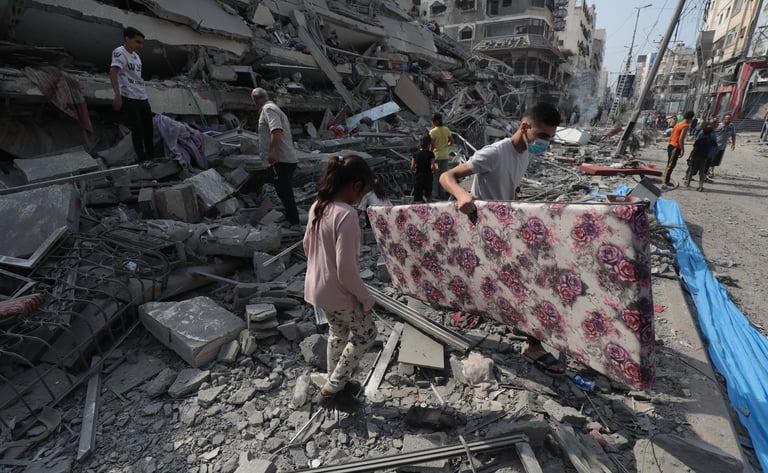Israel Declares Daily 10-Hour Humanitarian Pause in Gaza Strip as Food Crisis Intensifies
Israel has announced a daily suspension of military activity lasting ten hours in key populated zones of the Gaza Strip, reflecting mounting international pressure over the territory's severe humanitarian crisis. Starting July 27, the Israeli military will implement these tactical pauses from 10a.m. to 8p.m. in areas including Al-Mawasi, Deir al-Balah, and Gaza City sectors currently free of Israeli ground operations.
INTERNATIONAL
Thinkbrief
7/23/20252 min read


Tel Aviv: In a move drawing cautious optimism from aid groups yet skepticism from besieged residents, Israel has announced a daily ten-hour suspension of military activity in key residential parts of the Gaza Strip. The humanitarian pause, scheduled to take effect on July 27, will run each day from 10 a.m. to 8 p.m. According to Israel’s military spokesman, these windows will allow UN-coordinated aid convoys to access critical neighborhoods such as Al-Mawasi, Deir al-Balah, and designated sectors in northern Gaza City. These are all areas currently outside the scope of active Israeli ground operations.
The announcement comes as acute warnings of famine echo across the international community. UN agencies report that nearly a third of Gaza’s two million residents face dangerous food shortages. Conditions have grown so desperate that the World Food Programme recently began parachuting food and medical supplies into isolated sections, supplementing erratic and often perilous overland deliveries. Aid workers have described hours-long waits at border crossings while safe passage negotiations between Israeli officials and humanitarian representatives remain unresolved.
Pressure on Israel has mounted rapidly as the humanitarian disaster worsens. The United States and European Union have renewed calls for sustained, unimpeded access to food, water, and medical relief. At a recent press briefing, US Secretary of State Antony Blinken urged all sides to prioritize humanitarian needs above politics and military objectives.
Israel’s decision follows days of high-level talks with UN officials who criticized previous aid corridors as insufficient and unpredictable. The Israel Defense Forces state that the pause is intended to provide a reliable, clearly marked route for aid convoys. Humanitarian organizations will have access from 6 a.m. until 11 p.m., though the cessation of military activity is limited to the ten-hour daytime window. The pause covers only areas not witnessing active ground combat, and military operations against armed factions continue elsewhere.
On the ground, humanitarian workers express measured hope but warn that outcomes will depend on strict adherence to the timetable and genuine cooperation from all sides. “We welcome any step that saves lives and prevents catastrophe. But unless all parties guarantee the safe, predictable movement of convoys, the impact will be limited,” said a spokesperson for Doctors Without Borders.
Efforts to secure a broader ceasefire remain stalled. Negotiations mediated by Egypt, Qatar, and the US have made little progress. Israeli and Hamas representatives blame each other for the impasse, citing disputes over prisoner releases and future security guarantees.
While Israeli officials maintain that their actions target terrorist infrastructure and seek the recovery of hostages, international humanitarian law requires all parties to facilitate aid for civilians. Catherine Russell, head of UNICEF, recently warned that children are starving to death and every hour counts. UNICEF documents widespread malnutrition and trauma among Gaza’s youngest residents.
As trucks line up at crossings near the southern city of Rafah, Palestinian civilians express both relief and disappointment. Many say that shipments, while vital, remain inadequate amid relentless violence and displacement. In a message circulated by local activists, a mother sheltering in a school-turned-refugee camp pleads, “We need food but also an end to this nightmare. We have lost so much already.”
With global attention fixed on Gaza’s mounting crisis, Israel’s daily humanitarian pause represents a step that aid groups welcome but will watch closely for effectiveness and sincerity. The people of Gaza and the international community look to see whether this measure offers a real lifeline or remains another fleeting flicker of hope amid years of hardship.

